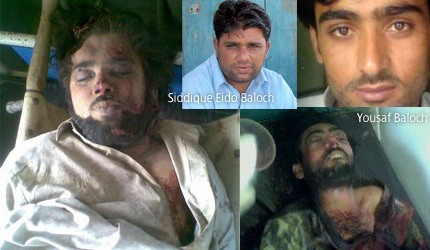The muslim military and bureaucrats of undivided India staged
a coup against the citizens of Pakistan in 1948, after occupying
Balochistan, and begain their fight against their own people in
Pakistan. The massacre of their own people since 1948, turned
Pakistan and Balochistan into a "slaughter-house" for Pakistani
Military to test their weapons, military tactics and bravery!!!
The unlimited bravery of Pakistan Army turned her Generals
to be the richest guys in Pakistan and Pakistani Military became
a Military Business Corporation, running the business of
diary-form to multiple Heavy Industries.
Pakistani Military`s policy, "what is YOURS is MINE" looted
85% of Pakistani budget. To divert the anger of Pakistani people`s
economic and social problems from their dirty deeds, Pakistani
Military started to massacre Balochs which is continuing unabated.
One can`t expect the Pakistani Generals shall learn a lesson
from the history because the President of Ivory-coast, a Professor
of history declined to abandon the office of Presidency inspite
of losing in election.
Payshaawar Qatilo Tum Sipahi Nahin by
Ahmad Faraz




 Friday, April 8, 2011 - 12:04 PM
Friday, April 8, 2011 - 12:04 PM 

